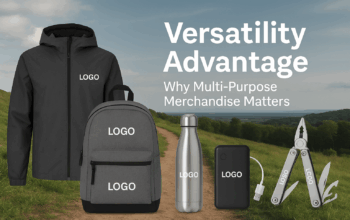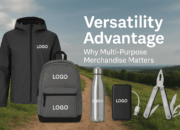Brand-building can be incredibly challenging. After all, there are so many businesses out there, many of them offering the same service that you’re currently talking about. Why should they do business with you, and even more importantly, how will they be able to tell you apart?
When talking about branding, the majority of people immediately think about the visuals. While important, these are not all there is to branding. Apart from this, you need to be able to make a branding plan and clearly define your brand. Remember, it’s the idea that we’re talking about here, and making an idea is never easy.
Define Your Product
One of the worst things you can do, as well as something that could make your bounce rate skyrocket, is not being able to define your product. Who are you? What is it that you do? Why you and not someone else? If you can answer these questions in the first several minutes, chances are that you can increase the impact on your audience.
Now, sometimes this is not as easy. Sure, you can single out the most important feature or task of your product. However, what if your potential audience is still not familiar enough with the subject matter to fully understand it? The truth is that, for the time being, you just need a foot in the door. You need them to stay around and start listening.
Most importantly, you need to change your narrative technique and focus more on what you can do for them than what they should do for you. In this story, the protagonist is not your brand but the customer. The protagonist has a problem, and the agent of its resolution is your product. From this perspective, you’re making your message more immersive and relatable.
It’s also important that you deliver some hard data. Tell them of your success through numbers. Offer testimonials. In other words, even if they’re not experts, they’ll be impressed by your ability to deliver some results.
Focus on the Visuals
The next thing you should do is emphasize your brand’s visuals. Here, you need to give your business distinguishable brand traits like logo and packaging. Even a slogan can become quite memorable when displayed in a memorable font. Corporate colors are another aspect worth your attention.
Namely, some colors have an impact on the user’s psychology. It’s not an accident that the majority of fast-food restaurants (KFC, McDonald’s, Pizza Hut, Burger King, etc.) are all using red and yellow (in most cases). After all, isn’t it good to stand out by using a different hue for your brand? Well, not in this case. You see, these colors affect people’s appetite in a positive way, which makes them ideal for fast-food brands.
This is also something that can help you present your brand to others in a simpler manner. People process images about 60.000 times quicker than verbal or textual stimuli. So, if your logo has a book, they’ll assume that it’s an educational organization. If it’s a ball, they’ll assume that it’s tied to a sport.
Lastly, you don’t want to make your visuals too complex. While strange images do grab attention, people don’t always have a positive sensation regarding the image that they can’t interpret for too long. Therefore, you might not want to take this route.
Forge a Good USP (Unique Selling Proposition)
In the business world, the question of all questions is – why your product and not someone else’s? This is what USP is there for. Sometimes, you will focus on the storybrand framework and try to tell a compelling brand story, thus forging a strong emotional bond with your client. If they can humanize your business, they’ll have an easier job relating to you and are more likely to do business with you.
More often than not, people will try to present a great USP through cost. However, going with a value is a smarter move. In some industries, offering the most frugal service is not a great recommendation. For instance, you don’t want to go to the cheapest dentist or the cheapest lawyer, do you? So, instead of just focusing on the cost, you should talk about the cost-efficiency or the value that one gets for the cost in question.
Aside from this, you could also brag about a unique feature or go a step further than that and play the beginner-friendliness card. You see, experts are looking for the features, but a giant untapped market of potential first-time users is quite concerned with the learning curve and how user-friendly it is. The best way to help them overcome their fear is to promise them a seamless beginner onboarding experience.
Mission and Vision
The truth is that sometimes your brand is observed through more than just material value. What is your purpose for entering the business world (aside from profit)? In an ideal world where there’s no need for money, would you still be doing what you’re doing? Why? By conveying this to your audience, they’ll understand much better what you’re all about.
Next, if you have beliefs and stances beyond your day-to-day operations, it might be worth your while to share them with your audience. What is a standard in your industry that you don’t like? If you had the power, how would you see this changed? What about broader worldviews and the impact of your industry on them?
In 2022, people need to know whom they’re doing business with on a personal level. Sometimes, this goes past the business and into some of the burning topics of our time. For instance, people want to know that they’re doing business with someone who cares about the wellbeing of their employees, not just their performance. This is a value that you can display in various ways, but it’s far more important that you actually do something about it.
In Conclusion
Keep in mind that while brands evolve, some branding essentials will give you peace of mind for a while. For instance, while you can eventually tweak your logo, this is a lot easier than coming up with one from scratch. Also, this is not something that you’ll do every year. In other words, all of these tasks are merely a foundation of your future success.













